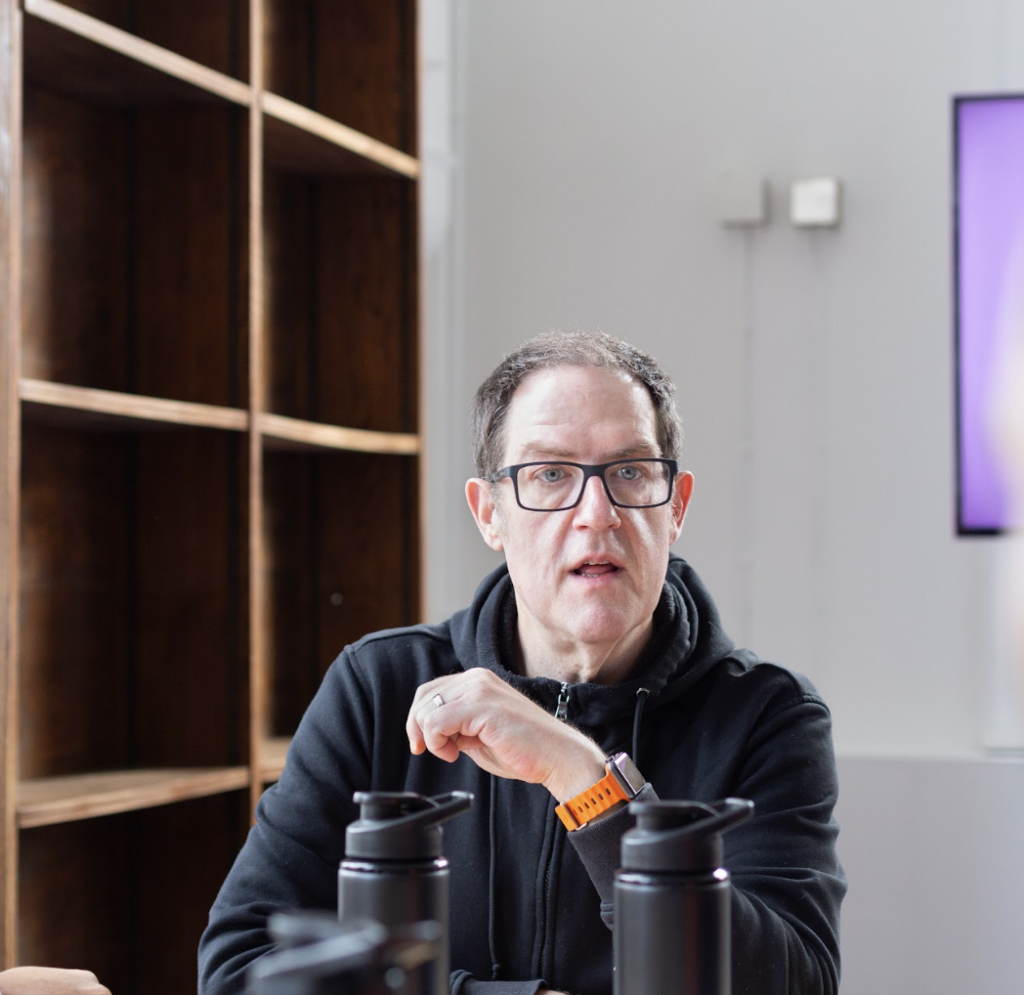1). What’s your background and how did you get involved with Set Ready Training?
I’ve worked in the industry for 20 years starting out as a freelancer, shooting, editing and mixing live content for electronic musicians and DJ’s for tours and festivals. This led me into directing/producing and editing short promos, live concerts and music documentaries. I now concentrate on video playback on set, projection mapping and editing showreels/promos.
I joined Screen Suffolk in 2017 working as a Film Officer dealing with incoming TV & Film productions, I work with Location Managers for studios such as Disney+, Netflix, Amazon and BBC.
I worked as a trainer in a different sector many years ago and with this previous experience I was keen to be involved as the Set Ready Course course grew and developed. I’ve seen first hand the need for people with different backgrounds to have their first opportunity to work in the film industry and see them flourish. It’s so rewarding to see the cohort come in on day 1 with little or no knowledge and by the end of the course they are raring to get on set and start their personal journey and career.
2). Why is Set Ready Training so Important?
There’s many barriers to entry when first starting out in the Film industry and Set Ready gives people who wouldn’t normally consider the film industry the chance to have their first paid work on a live set or location.
There is a crew shortage within the UK industry which has been created by a number of factors including the growth of filming, the pandemic and more recently the strikes. Many people have left the industry due to some of these factors and if we don’t train entry level people now, there’s going to be difficulties in future years.
Almost everyone in the industry starts at the bottom and works their way up, so we need more entry level workers now who can progress over the coming years to fulfil future requirements.
We’ve had 100’s of students on the courses, and it’s available to anyone, ranging from recent graduates through to long term unemployed and ex-service people. There’s so many different roles for anyone who wants to work in the industry and Set Ready Training provides them with an introduction to the industry and opens their eyes to the different departments and future career paths they can take.

3). What’s the best bit about Set Ready?
I think most of the trainees come into the course feeling a bit unsure of what they will be doing and how it all works. By the end of day 2 when we run the last practical Radio session, I can see that they have already started creating their own networks and they have knowledge to enable them to step onto a set for the first time and feel comfortable, ready and prepared to work. Knowing that for some, this is the start of a new career after only a couple of days is really rewarding.
4). What is the course about and what’s its outcome?
Over the 2 day course we cover many areas including, introduction to the industry, the production process, how to be a location marshal, how to read important documents, freelance life, set etiquette and radio use.
We try to create a relaxed environment so the trainees are able to be open and ask questions and are empowered with the knowledge they are gaining, We make the content engaging, using discussions, videos, an in person alumni guest and practical sessions on seemingly simple areas such as ‘How to build and operate a radio’ or ‘putting up an ezy-up’. This knowledge from our intensive sessions means that they can approach their first day on set feeling reassured that they won’t feel out of place or not understand what the lingo is. This makes all the difference and gives them confidence that they can carry out the role.
Crucially, one of the differentiators with this course is that after the 2 days, the graduates are offered paid work on a set or location as a location marshal. This is an ideal first role as it doesn’t require previous knowledge or experience and lets the graduate experience the many different aspects of a shoot whilst carrying basic but essential tasks. Many graduates have used this opportunity to get further work on a production by showing desirable skills and networking to progress into their chosen department.

